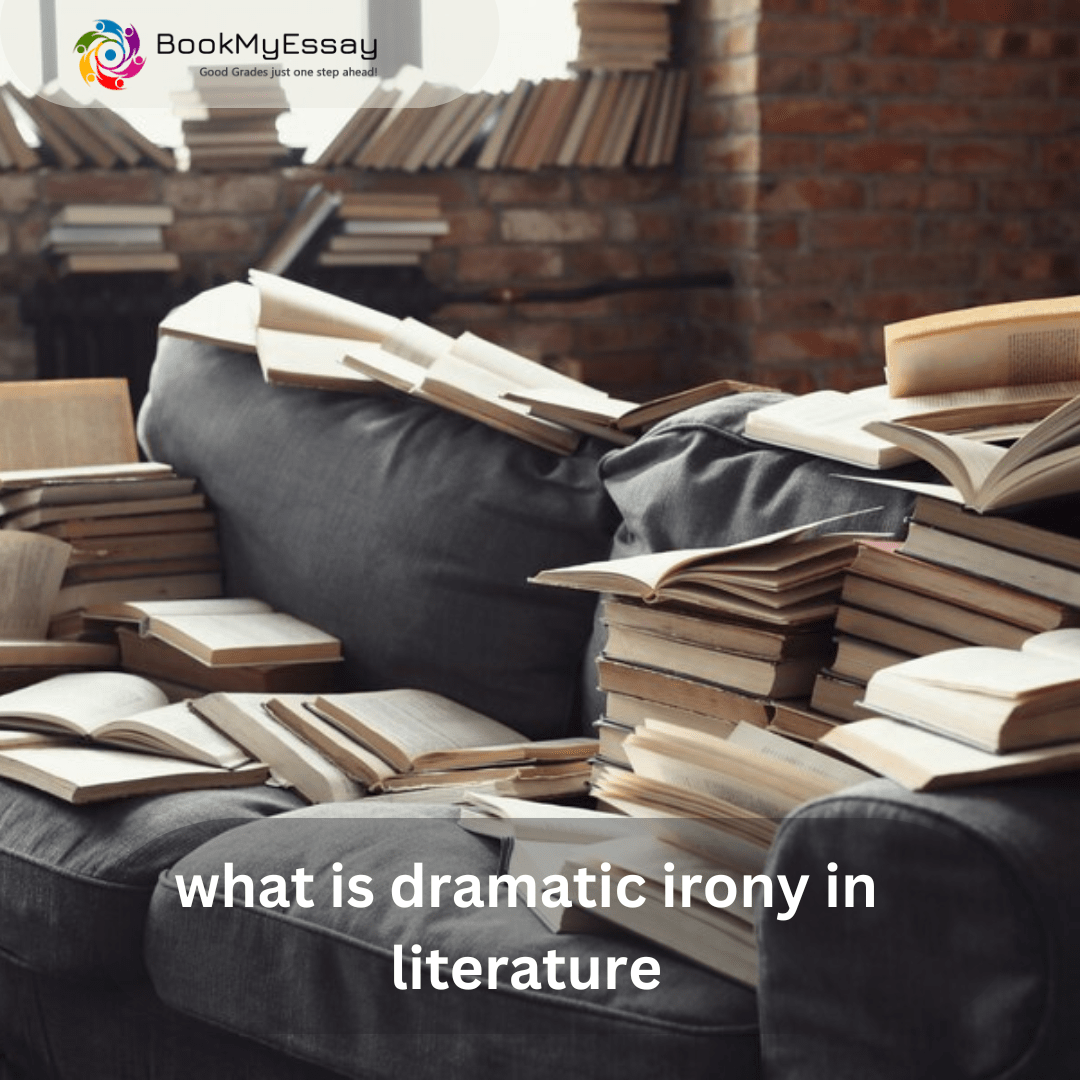
Literature thrives on the elements of surprise, tension, and suspense. One powerful tool that writers use to captivate their audience is dramatic irony. Understanding what dramatic irony in literature entails and how it functions to create a gripping narrative can enhance one’s appreciation of literary works. Moreover, for students and budding writers seeking to master this technique, professional writing services online, such as BookMyEssay, offer invaluable guidance and resources. Whether through online homework help, a writing helper free online, or expert consultations, these services can significantly aid in grasping and applying literary devices like dramatic irony.
What is Dramatic Irony in Literature?
What is dramatic irony in literature? Dramatic irony occurs when the audience or reader possesses knowledge that one or more characters in the narrative do not. This discrepancy between the characters’ understanding and the audience’s knowledge creates a layer of complexity that can generate tension, suspense, and emotional engagement. For example, in Shakespeare’s “Romeo and Juliet,” the audience knows that Juliet is not truly dead, but Romeo does not, leading to his tragic decision. This foreknowledge creates a profound sense of anticipation and dread as readers await the inevitable unfolding of events.
Creating Tension and Suspense through Dramatic Irony
- Anticipation and Foreboding: Dramatic irony creates a sense of anticipation. When readers or viewers know what is going to happen before the characters do, it builds a feeling of impending doom or excitement. For instance, in Sophocles’ “Oedipus Rex,” the audience knows Oedipus’s true parentage long before he does, creating a tense atmosphere as he unknowingly condemns himself through his actions and declarations.
- Emotional Engagement: The emotional impact of dramatic irony is significant. Readers become emotionally invested in the characters and their fates. The disparity between the character’s perceptions and the audience’s knowledge can evoke feelings of pity, fear, or frustration. This engagement is heightened when characters make decisions that lead them toward a fate the audience already anticipates, thus deepening the emotional experience.
- Character Development: Dramatic irony also facilitates deeper character development. By providing the audience with insights into a character’s thoughts and motivations while withholding certain truths from the character themselves, writers can explore the complexities of human nature. This multifaceted portrayal allows readers to understand and empathize with characters on a deeper level.
- Plot Complication: Writers use dramatic irony to introduce complications and twists in the plot. This device can lead to misunderstandings, mistaken identities, and unforeseen consequences that keep the audience on edge. In Jane Austen’s “Pride and Prejudice,” the reader is aware of Mr. Darcy’s growing affection for Elizabeth Bennet long before she is, creating a suspenseful dynamic as we watch her navigate her prejudices and misconceptions.
Utilizing Professional Writing Services Online
For those aiming to hone their writing skills and effectively incorporate dramatic irony into their work, professional writing services online offer an excellent resource. BookMyEssay, for example, provides comprehensive support to students and writers. These services can assist with understanding complex literary concepts and offer practical advice on implementation.
Online Homework Help: Students often struggle with assignments that require an understanding of nuanced literary devices like dramatic irony. Online homework help from experts can clarify these concepts, offering detailed explanations and examples that make learning more accessible.
Writing Helper Free Online: Several platforms offer free online writing tools that can aid in drafting and revising literary pieces. These tools can help identify areas where dramatic irony might be effectively incorporated, enhancing the overall narrative.
The Role of BookMyEssay
BookMyEssay stands out among professional writing services online for its tailored support and expertise in literary analysis and writing. Here’s how it can help:
- Expert Guidance: BookMyEssay provides access to experienced writers and literary scholars who can offer personalized guidance. Whether you need help with understanding the intricacies of dramatic irony or advice on structuring your narrative, these experts can provide valuable insights.
- Custom Writing Services: For those who require more extensive assistance, BookMyEssay offers custom writing services. This can include help with essay writing, literary analysis, and even crafting original pieces that effectively use dramatic irony and other literary devices.
- Educational Resources: Beyond direct assistance, BookMyEssay offers a wealth of educational resources, including articles, tutorials, and sample essays. These materials can serve as excellent references for understanding how dramatic irony works and how to use it in your writing.
- Feedback and Editing: Constructive feedback is crucial for any writer. BookMyEssay offers editing and proofreading services that not only correct grammatical errors but also suggest improvements in narrative techniques, including the use of dramatic irony.
Conclusion
Dramatic irony is a potent literary device that enhances tension, suspense, and emotional engagement in a narrative. By allowing the audience to possess knowledge that characters do not, writers can create a rich and compelling reading experience. For those looking to master this technique, professional writing services online, such as BookMyEssay, offer invaluable support. Whether through online homework help, a writing helper free online, or personalized consultations, these services can significantly aid in understanding and applying dramatic irony effectively. Leveraging such resources can transform a budding writer’s approach to storytelling, enabling them to craft narratives that captivate and resonate with their audience.
